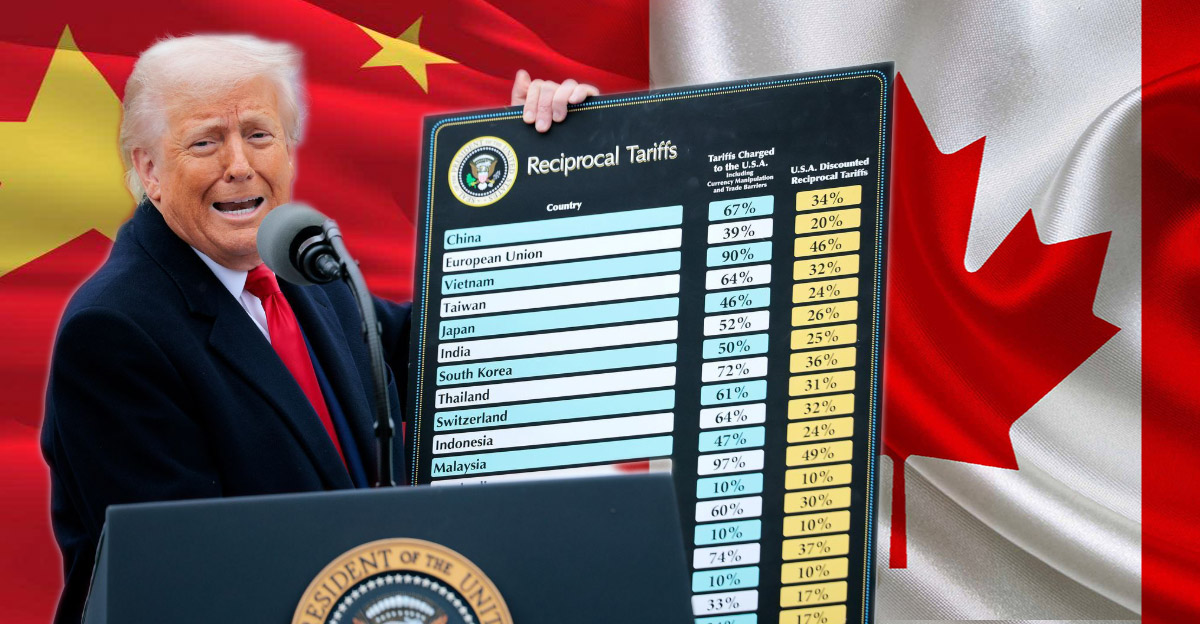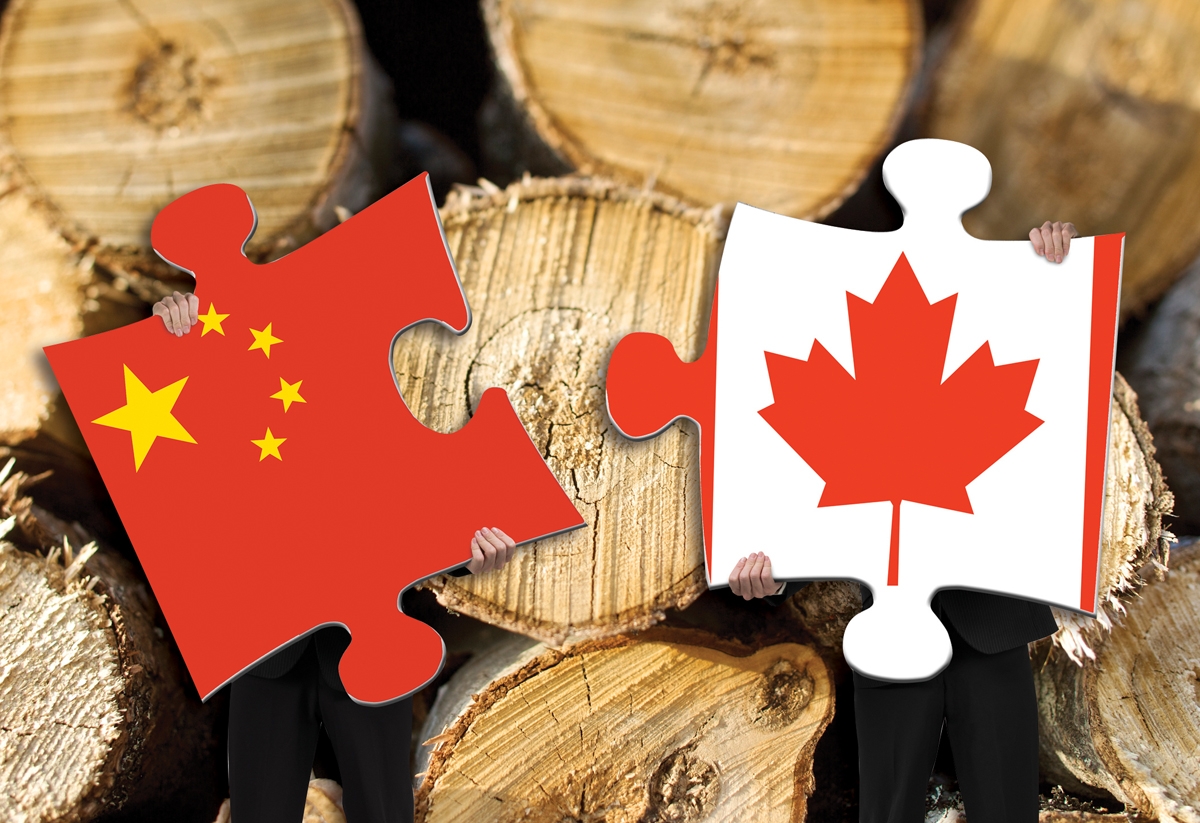
Trump’s Tariff Turbulence: Why Canada Needs a Balanced Approach with China
The U.S. Tariffs and Canada’s Economic Vulnerability: The Case for Rethinking Trade with China
The U.S. has imposed sweeping tariffs on its global trading partners, including Canada, China, and others, resulting in significant economic and diplomatic consequences. These tariffs, particularly on Canadian goods, have disrupted Canada’s economy, highlighting the risks of over-dependence on the U.S. as its primary trading partner. Additionally, China, Canada’s second-largest trading partner, has also been targeted, along with key allies in Europe and Mexico. To secure its economic future, Canada must urgently diversify its trade relationships, with a focus on strengthening commercial and energy ties with China.
A Pragmatic Approach to China: Key to Economic Resilience
Despite ongoing political tensions, China—a market of 1.3 billion people—presents an undeniable opportunity for Canada to reduce its economic vulnerability. Strengthening trade and energy relations with China would help Canada lessen its dependence on the U.S. and create long-term shared benefits. However, Canadian political rhetoric often undermines these opportunities. It is in Canada’s interest to adopt a more balanced, pragmatic approach, moving away from vilifying China toward fostering mutually beneficial cooperation. This shift in perspective is essential for Canada’s economic resilience in today’s volatile global trade environment. China is Canada’s second largest trading partner after the United States. Despite political tension, in 2023 Canada-China trade was 134 billion dollars and the business to business relations remain strong.
Why the Conservatives Should Adopt a More Pragmatic Stance on China
China is a vital market for Canadian exports, including agriculture, energy, and consumer goods. Strengthening economic ties with China is essential to reducing the impact of U.S. tariffs and unlocking new growth opportunities. For Canada to successfully reengage with China, all political leaders must align their rhetoric with their actions.
While Conservative leader Pierre Poilievre’s strong stance on China may appeal to some voters, his extreme rhetoric risks undermining Canada’s long-term economic interests. By framing China solely as an adversary, Poilievre is overlooking the potential for collaboration that could bolster Canada’s economy and diversify its trade relationships. A more balanced approach—one that addresses human rights and national security concerns while fostering economic engagement—would position Canada as a global leader in constructive diplomacy. The Conservative Party’s current aggressive approach must also evolve. As Canada seeks to diversify its economic ties, alienating a key trading partner like China could be disastrous. A more measured tone would open the door to productive dialogue, enabling stronger trade and energy partnerships that are crucial for Canada’s future.
Mark Carney’s Contradictory Stance on China
While Poilievre’s rhetoric on China is blunt, Mark Carney’s actions present an even more troubling contradiction. As CEO of Brookfield Asset Management, Carney pursued private-sector deals with China and borrowed money from Chinese entities. However, as an advisor to the Trudeau government, he was part of a team that publicly vilified China. This double standard raises serious concerns about Carney’s credibility and consistency in his economic vision. Carney’s record as an economic advisor to the Trudeau government has left Canada vulnerable to external shocks, including U.S. tariffs. His policies, which weakened Canada’s economic foundation, make the country more susceptible to such economic disruptions. Carney’s recent actions, such as his push to expand energy relations with Germany, highlight his hypocrisy. Just two years ago, Carney played a key role in rejecting a lucrative $60 billion energy deal with Germany—a deal that ultimately went to Australia, costing Canada a significant opportunity.
Carney’s Policy Failures and Energy Contradictions
Carney’s approach to Canada’s energy policies has also been inconsistent. As UN Special Envoy for Climate Action, he championed policies promoting green subsidies and massive government intervention. These measures contributed to persistent inflation and a housing crisis, further entrenching Canada’s reliance on the U.S. economy. Yet, despite his earlier opposition to critical energy projects like the Northern Gateway pipeline, Carney now claims to support energy expansion, including pipelines across Canada. His record raises serious doubts about his commitment to Canadian energy sovereignty. Moreover, as CEO of Brookfield, Carney supported projects abroad that he had previously deemed unsuitable for Canada. This inconsistency undermines his credibility and further questions his motivations.
A Better Future: Canada’s Energy Relationship with China
In response to U.S. tariffs, both China and Canada have criticized the Trump administration’s protectionist policies, calling them disruptive to global trade. China has positioned itself as a champion of multilateralism and globalization, advocating for international cooperation over unilateralism. Its stance mirrors Canada’s in many ways—protecting national interests while promoting fairness and inclusivity in global economic affairs.
As Canada faces growing economic pressure, leaders—whether Carney or Poilievre—must prioritize pragmatic diplomacy over ideological divisions. A transactional approach to China, especially in the energy sector, is critical for Canada’s future. After all, energy demand in China is only set to rise, and Canada has abundant resources to offer. Canada also needs to take a hard look at the tariffs imposed by the Liberal government to keep Chinese electric vehicles out of the market. The Chinese responded with retaliatory tariffs on Canadian canola and agricultural products, which will cost our farmers billions. It may be time to lift the ban and level the playing field. This will be a bitter pill for Canadian auto sector workers, but the Americans have made it clear they couldn’t care less about our auto sector or workers and are prepared to see them close shop on this side of the border.
A Sensible Shift for Canada’s Future
Canada’s economic future depends on leaders who can balance national security and human rights concerns with the practical need to diversify trade relationships. A transactional approach to China—grounded in mutual benefit, economic cooperation, and constructive diplomacy—will ensure that Canada remains competitive in an increasingly interconnected global economy.
As tensions with the U.S. persist and global markets evolve, Canada cannot afford to avoid doing business with China. China is the world’s second-largest economy, has significant energy requirements and represents a huge market for Canadian businesses. Canada’s path forward lies in fostering stronger ties and mutually beneficial trade. Key to this will be diversifying as much as possible away from dependency on the U.S. market. The Americans have made it very clear that doing business with Canada is nothing more than a transaction to them. Canada must accept this reality and move forward in its own interests with others, including China, who are willing to expand their trade relationships. Whether it is Pierre Poilievre or Mark Carney, who are elected PM on April 28, one of their first moves should be to engage President Xi directly with the question: How much energy can we sell you, and when?









